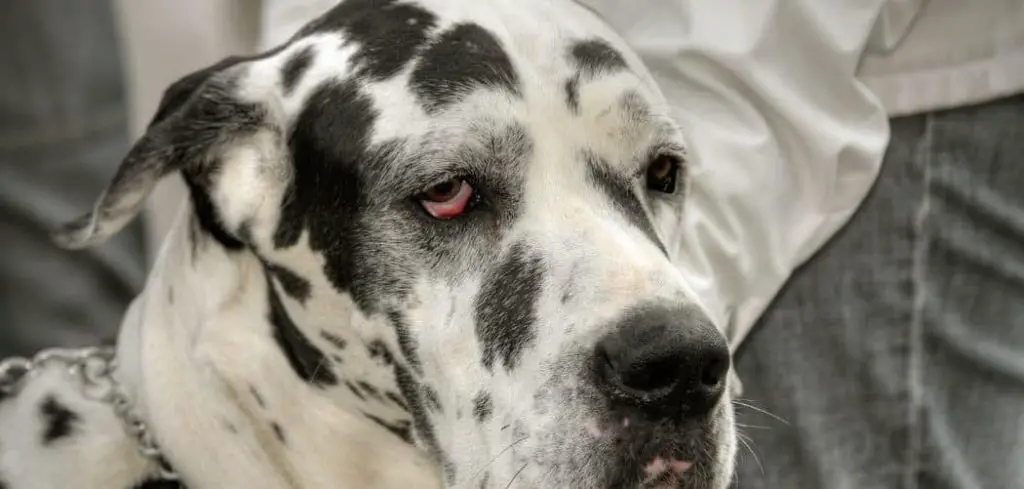Seeing your dog foaming at the mouth and refusing food can be deeply alarming. These symptoms may suggest anything from dental distress to dangerous toxins.
We outline the common causes of dog foaming at mouth and not eating, what you can do at home, and when to seek veterinary help.
Dog Foaming at Mouth and Not Eating — Why It Happens
Dogs may foam at the mouth and stop eating due to nausea, poisoning, oral pain, or even seizures. These symptoms often appear suddenly and can indicate serious internal distress. While some causes are treatable at home, others require urgent veterinary attention to prevent worsening or fatal complications.

Common Causes of Dog Foaming at Mouth and Not Eating
Nausea or Gastrointestinal Upset
When dogs feel nauseous, they may salivate excessively and refuse food. This can lead to white, frothy foam around the mouth.
Common culprits include dietary indiscretion (eating something they shouldn’t), motion sickness, or early stages of gastrointestinal infection.
You may also notice your dog licking their lips, swallowing repeatedly, or heaving without vomiting.
If nausea persists beyond 24 hours or is accompanied by other symptoms like vomiting or lethargy, veterinary evaluation is needed.
Ingested Toxins
Many toxins, including cleaning products, plants, or human medications, can trigger drooling, foaming, and appetite loss.
The body’s response to poison often includes hypersalivation, shaking, vomiting, and disorientation.
If your dog’s symptoms appear suddenly and you suspect they could have chewed or swallowed something unusual, do not wait.
Immediate treatment can make a critical difference.
Read more: Dog Shaking and Not Eating (Here’s why)
Dental Disease or Oral Pain
Dental problems such as abscesses, broken teeth, or oral tumors can make eating painful and trigger mouth foaming.
The pain leads to reluctance to chew or swallow, and inflammation can increase drooling.
Check for signs like bad breath, pawing at the mouth, bleeding gums, or visible swelling.
These symptoms require a veterinary dental exam to determine whether antibiotics, extractions, or other care is needed.
Seizures or Neurological Episodes
Dogs may foam at the mouth during or after a seizure. Loss of appetite often follows these episodes due to confusion, exhaustion, or nausea.
Foaming is caused by excessive drool and jaw movement during muscle spasms.
Even a single seizure event should be discussed with your vet, especially if it occurs alongside appetite loss or lethargy.
Rabies (Very Rare)
Although extremely rare due to widespread vaccination, rabies is a fatal viral disease that causes foaming at the mouth, aggression, paralysis, and refusal to eat or drink.
Dogs with rabies also show behavioral changes and severe neurological symptoms.
If your dog is unvaccinated and showing sudden neurological changes, urgent evaluation is essential.
What to Do If Your Dog Is Foaming at the Mouth and Not Eating
Start by removing access to any potential toxins or harmful substances around your dog’s environment.
Monitor their behavior closely—look for signs like shaking, disorientation, or worsening drooling.
Try offering bland food like boiled chicken and rice. If your dog refuses it, do not force them to eat.
Provide clean water and note whether they are drinking. Avoid brushing their teeth or prying their mouth open if they appear in pain.
If symptoms last more than a few hours, worsen, or include vomiting, tremors, or collapse, seek veterinary help immediately.
Always keep track of when symptoms started and whether your dog had access to unusual objects or substances.
When to Call or Visit Your Vet
If your dog is foaming at the mouth and not eating, contact your vet right away if you notice:
Sudden or violent foaming with weakness or shaking
Exposure to known toxins or medications
Bleeding or swelling in the mouth
Repeated vomiting or diarrhea
Seizures or collapse
Ongoing refusal to eat or drink for 24 hours or more
Early treatment gives your dog the best chance of recovery.
Read more: Dog Feeling Weak and Not Eating (What it means)
Key Takeaway
Foaming at the mouth and loss of appetite can signal anything from mild nausea to medical emergencies. Stay calm, observe your dog closely, and seek veterinary attention if symptoms are severe or persist. With timely care, many underlying causes can be successfully treated and managed.
